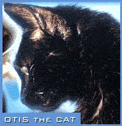Joshua Lisbon–a researcher/educator/storyteller at the center of a new PBS/Nature documentary, “Willow: Diary of a Mountain Lion”—describes his background and experience (and academic training) before working on the 10-year study that formed the core content of this doc. Tongue partly in cheek, Lisbon tried to dismiss his education-heavy history as “wrong”
Tongue partly in cheek, Lisbon tried to dismiss his education-heavy history as “wrong” for this project. But given how illuminating—often revelatory—the film is, it’s hard not to view Lisbon’s pedagogy-oriented resume as pivotal to the stellar outcome. We discuss one notable trait of the study that quickly emerges in the film: how noninvasive, “hands off,” the research was— early in the documentary, Lisbon says he and his colleagues “don’t handle cats, don’t collar cats, don’t want to disturb them in any way.” We explore how they decided on that approach, who made that decision, and why. I ask Lisbon if the results generated through this method strike him as more pure than employing more intrusive techniques….These animals sporting no collars, or other tracking devices, brings us to an intriguing question: To
for this project. But given how illuminating—often revelatory—the film is, it’s hard not to view Lisbon’s pedagogy-oriented resume as pivotal to the stellar outcome. We discuss one notable trait of the study that quickly emerges in the film: how noninvasive, “hands off,” the research was— early in the documentary, Lisbon says he and his colleagues “don’t handle cats, don’t collar cats, don’t want to disturb them in any way.” We explore how they decided on that approach, who made that decision, and why. I ask Lisbon if the results generated through this method strike him as more pure than employing more intrusive techniques….These animals sporting no collars, or other tracking devices, brings us to an intriguing question: To  what extent are there research challenges posed by many mountain lions looking very
what extent are there research challenges posed by many mountain lions looking very much alike—at least, to a layman like myself? Which is to say: With these cats lacking distinguishing traits—like spots or stripes—how do you identify one mountain lion from another? Lisbon responds that it revolves around closely scrutinizing footage, testing genetic material, and other variables. I observe that a major factor in what makes the film so magical is the often-dazzling footage—with remarkable access and proximity chiefly to Willow and her kittens, but also presenting up-close looks at other animals, including foxes, bears, wolves, elk, bobcats, skunks, and wolverines. This visual bonanza is the product of numerous cameras…as if someone had mused aloud, “if five cameras are good, 50 are better—and 150 cameras are even better than that….” Lisbon points out that he and his colleagues consider the study—again, 10 years in the making—now complete, and that the results won’t be published in a journal; in this case, “Willow: Diary of a Mountain Lion” serves as the journal. (https://www.pbs.org/wnet/nature/about-willow-diary-of-a-mountain-lion/33397/) [Photos by Colin Ruggiero]
much alike—at least, to a layman like myself? Which is to say: With these cats lacking distinguishing traits—like spots or stripes—how do you identify one mountain lion from another? Lisbon responds that it revolves around closely scrutinizing footage, testing genetic material, and other variables. I observe that a major factor in what makes the film so magical is the often-dazzling footage—with remarkable access and proximity chiefly to Willow and her kittens, but also presenting up-close looks at other animals, including foxes, bears, wolves, elk, bobcats, skunks, and wolverines. This visual bonanza is the product of numerous cameras…as if someone had mused aloud, “if five cameras are good, 50 are better—and 150 cameras are even better than that….” Lisbon points out that he and his colleagues consider the study—again, 10 years in the making—now complete, and that the results won’t be published in a journal; in this case, “Willow: Diary of a Mountain Lion” serves as the journal. (https://www.pbs.org/wnet/nature/about-willow-diary-of-a-mountain-lion/33397/) [Photos by Colin Ruggiero]
 ALSO: I spoke with Myriam Parham, the co-founder and president of Florida Voices for Animals, which amongst a broad portfolio of protests, campaigns and other objectives, produces the annual Tampa Bay Veg Fest. This year’s Veg Fest–the 13th annual edition—is set to take place Nov. 8, from 11am to 5pm, at Perry Harvey Sr. Park. Parham outlines the impetus for launching Florida Voices for Animals, and the reasons the organization created, and continues to present, Veg Fest. She emphasizes that one guiding principle is the fundamental importance of supporting vegan restaurants and other businesses—both those operating as vendors at Veg Fest, and those located elsewhere. Parham highlights an array of this year’s other Veg Fest offerings, including live music, speakers (among them, Dr. Crystal Heath, my guest on the Oct. 15 “Talking Animals”), yoga, cooking demos, and more. (https://www.tampabayvegfest.com/)
ALSO: I spoke with Myriam Parham, the co-founder and president of Florida Voices for Animals, which amongst a broad portfolio of protests, campaigns and other objectives, produces the annual Tampa Bay Veg Fest. This year’s Veg Fest–the 13th annual edition—is set to take place Nov. 8, from 11am to 5pm, at Perry Harvey Sr. Park. Parham outlines the impetus for launching Florida Voices for Animals, and the reasons the organization created, and continues to present, Veg Fest. She emphasizes that one guiding principle is the fundamental importance of supporting vegan restaurants and other businesses—both those operating as vendors at Veg Fest, and those located elsewhere. Parham highlights an array of this year’s other Veg Fest offerings, including live music, speakers (among them, Dr. Crystal Heath, my guest on the Oct. 15 “Talking Animals”), yoga, cooking demos, and more. (https://www.tampabayvegfest.com/)
COMEDY CORNER: Myles Anderson’s “Mountain Lion” (DS edit) (https://www.mylesandersoncomedy.com/)
MUSIC: Rebekah Pulley’s “Talking Animals Theme”
NAME THAT ANIMAL TUNE: We didn’t play “Name That Animal Tune” today.
AUDIO ARCHIVE:
Listen Online Now:



